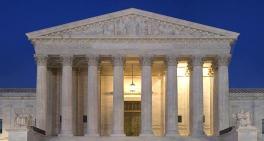U.S. Bankruptcy Courts IV
United States Courts
Bankruptcy courts appoint a trustee to represent the interests of the creditors and administer the cases. The U.S. Trustee[3] appoints Chapter 7 trustees for a renewable period of 1 year, Chapter 13 trustees are “standing trustees” who administrator cases in a specific geographic region.
Kentucky Eastern - ECF
Kentucky Western - ECF
Louisiana Eastern - ECF
Louisiana Middle - ECF
Louisiana Western - ECF
Maine - ECF
Maryland - ECF
Massachusetts - ECF
Michigan Eastern - ECF
Michigan Western - ECF
Minnesota - ECF
Mississippi Northern - ECF
Mississippi Southern - ECF
Missouri Eastern - ECF
Missouri Western - ECF
Montana - ECF
Nebraska - ECF
Nevada - ECF
New Hampshire - ECF
Related listings
-
U.S. Courts of Appeals
United States Courts 07/30/2017There are 13 appellate courts that sit below the U.S. Supreme Court, and they are called the U.S. Courts of Appeals. The 94 federal judicial districts are organized into 12 regional circuits, each of which has a court of appeals. The appellate ...
-
U.S. Supreme Court
United States Courts 07/30/2017U.S. Supreme Court The Supreme Court is the final judge in all cases involving laws of Congress, and the highest law of all — the Constitution. The Supreme Court, however, is far from all-powerful. Its power is limited by the other two branches...
-
National Courts
United States Courts 06/30/2017Judicial Panel On Multidistrict Litigati - ECF U.S. Court Of Federal Claims - ECF U.S. Court Of International Trade - ECF

Processing Change for Certain Form I-730 Petitions
USCIS changed the processing location for certain Form I-730, Refugee/Asylee Relative Petition, filings. Previously the Service Center Operations Directorate processed these filings. Now, the International Adjudications Support Branch (IASB) in the Refugee, Asylum, and International Operations Directorate will process the petitions filed by individuals who were admitted to the United States as refugees. Petitioners and/or accredited representatives who file refugee-based Form I-730 petitions will receive further instructions when IASB receives their filings. Form I-730 petitions filed by persons granted asylum will not be affected by this change. The mailing instructions for Form I-730 remain the same. Petitioners should continue to follow the Where to File directions on the Form I-730 page. This policy update is consistent with the Department of Labor’s (DOL’s) Standard Occupational Classification system. DOL defines economists as people who conduct research, prepare reports, or formulate plans to address economic problems related to the production and distribution of goods and services or monetary and fiscal policy. Economists may collect and process economic and statistical data using sampling techniques and econometric methods.




